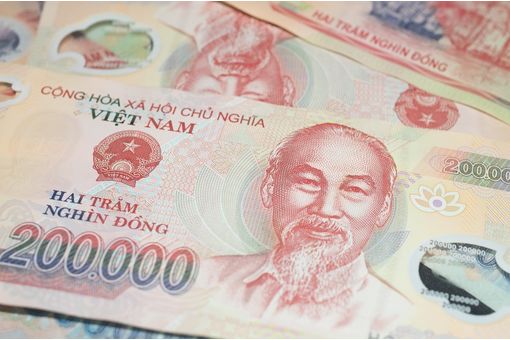Interviews
Sappi's Cloquet mill to make cellulose fibre for textiles
05 Mar '12
3 min read
The 113-year-old mill in Cloquet city in Carlton County, Minnesota, will soon be making cellulose fibre that can then be used to make textiles, clothing and baby wipes.
Sappi Fine Paper, the company that currently makes pulp for use in paper mills at the Cloquet mill, has received approval from Minnesota Pollution Control Agency for construction of its US$ 170 million project for converting wood pulp to chemical cellulose.
The project would be first of its kind in Minnesota and construction work for the same is likely to begin next month.
As part of the project, Sappi Fine would fully convert its existing mill from making pulp for paper to producing dissolved pulp or chemical cellulose, which is expected to be exported to textile manufacturing units in India, Indonesia and China by May next year.
The project would be carried out on an extremely fast track, according to Rick Dwyer, Managing Director of the Cloquet mill.
On completion of the project, he said, the Cloquet mill would be able to convert wood to a purer form of dissolved pulp that can be further processed into viscose staple fibre (vsf) to make rayon textiles.
Sappi's initiative is a part of its global plan to diversify and upgrade from making lower-profit paper pulp to high-profit yielding pulp for textiles.
There are numerous paper pulp manufacturers globally and new mills are being set up in South America, while Sappi estimates that there will be a huge shortage of chemical cellulose for making rayon textiles during the next two decades.
The diversification and upgradation of the Cloquet mill would not result in job loss for any of the nearly 760 people employed there. In addition, the move is projected to extend the lifespan of the mill by several years, Sappi said.
In 2010, about 74 million tons of textiles were produced globally. Out of these, polyester had a major share with 48 percent, while cotton followed next with 33 percent share. Polypropylene, nylon, rayon (chemical cellulose), acrylic and wool had six, five, four, three and one percent share respectively.
Sappi notes that in 2010, nearly 4 million tons of chemical cellulose was produced globally, and it expects rayon's share to increase to over eight percent of total textiles produced globally during the next few years.
The Cloquet mill would become the first chemical cellulose plant for Sappi in North America.
Sappi is already the world's largest manufacturer of chemical cellulose at its units in South Africa, where the company is also rapidly expanding its capacity.
Sappi Fine Paper, the company that currently makes pulp for use in paper mills at the Cloquet mill, has received approval from Minnesota Pollution Control Agency for construction of its US$ 170 million project for converting wood pulp to chemical cellulose.
The project would be first of its kind in Minnesota and construction work for the same is likely to begin next month.
As part of the project, Sappi Fine would fully convert its existing mill from making pulp for paper to producing dissolved pulp or chemical cellulose, which is expected to be exported to textile manufacturing units in India, Indonesia and China by May next year.
The project would be carried out on an extremely fast track, according to Rick Dwyer, Managing Director of the Cloquet mill.
On completion of the project, he said, the Cloquet mill would be able to convert wood to a purer form of dissolved pulp that can be further processed into viscose staple fibre (vsf) to make rayon textiles.
Sappi's initiative is a part of its global plan to diversify and upgrade from making lower-profit paper pulp to high-profit yielding pulp for textiles.
There are numerous paper pulp manufacturers globally and new mills are being set up in South America, while Sappi estimates that there will be a huge shortage of chemical cellulose for making rayon textiles during the next two decades.
The diversification and upgradation of the Cloquet mill would not result in job loss for any of the nearly 760 people employed there. In addition, the move is projected to extend the lifespan of the mill by several years, Sappi said.
In 2010, about 74 million tons of textiles were produced globally. Out of these, polyester had a major share with 48 percent, while cotton followed next with 33 percent share. Polypropylene, nylon, rayon (chemical cellulose), acrylic and wool had six, five, four, three and one percent share respectively.
Sappi notes that in 2010, nearly 4 million tons of chemical cellulose was produced globally, and it expects rayon's share to increase to over eight percent of total textiles produced globally during the next few years.
The Cloquet mill would become the first chemical cellulose plant for Sappi in North America.
Sappi is already the world's largest manufacturer of chemical cellulose at its units in South Africa, where the company is also rapidly expanding its capacity.
Fibre2fashion News Desk - India
Popular News
Leave your Comments
Editor’s Pick
Kimberly Morgan and Rik Veltman
K3 Business Technology Group PLC
































-Ltd..jpg?tr=w-120,h-60,c-at_max,cm-pad_resize,bg-ffffff)





.jpg?tr=w-120,h-60,c-at_max,cm-pad_resize,bg-ffffff)
.jpg?tr=w-120,h-60,c-at_max,cm-pad_resize,bg-ffffff)






